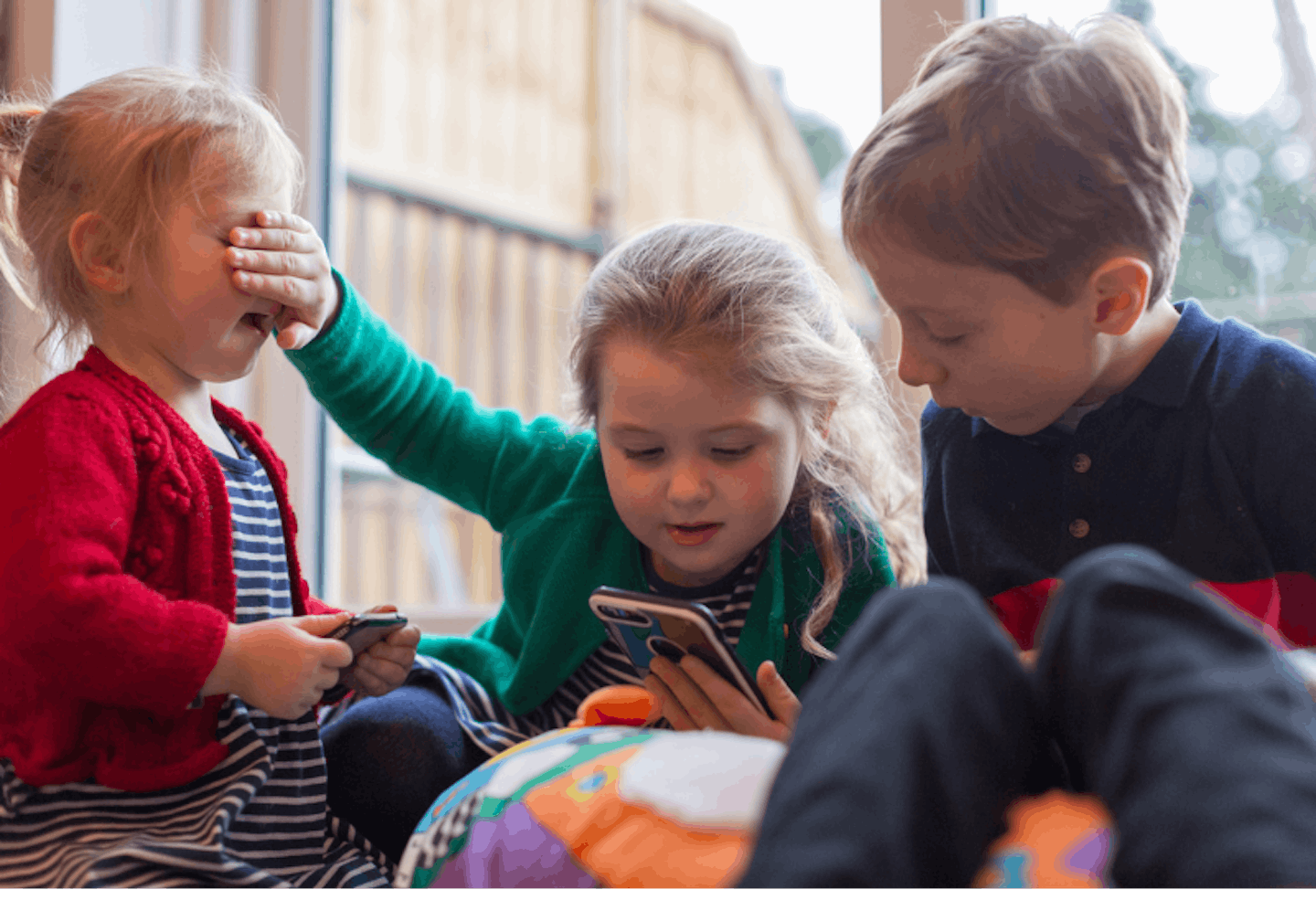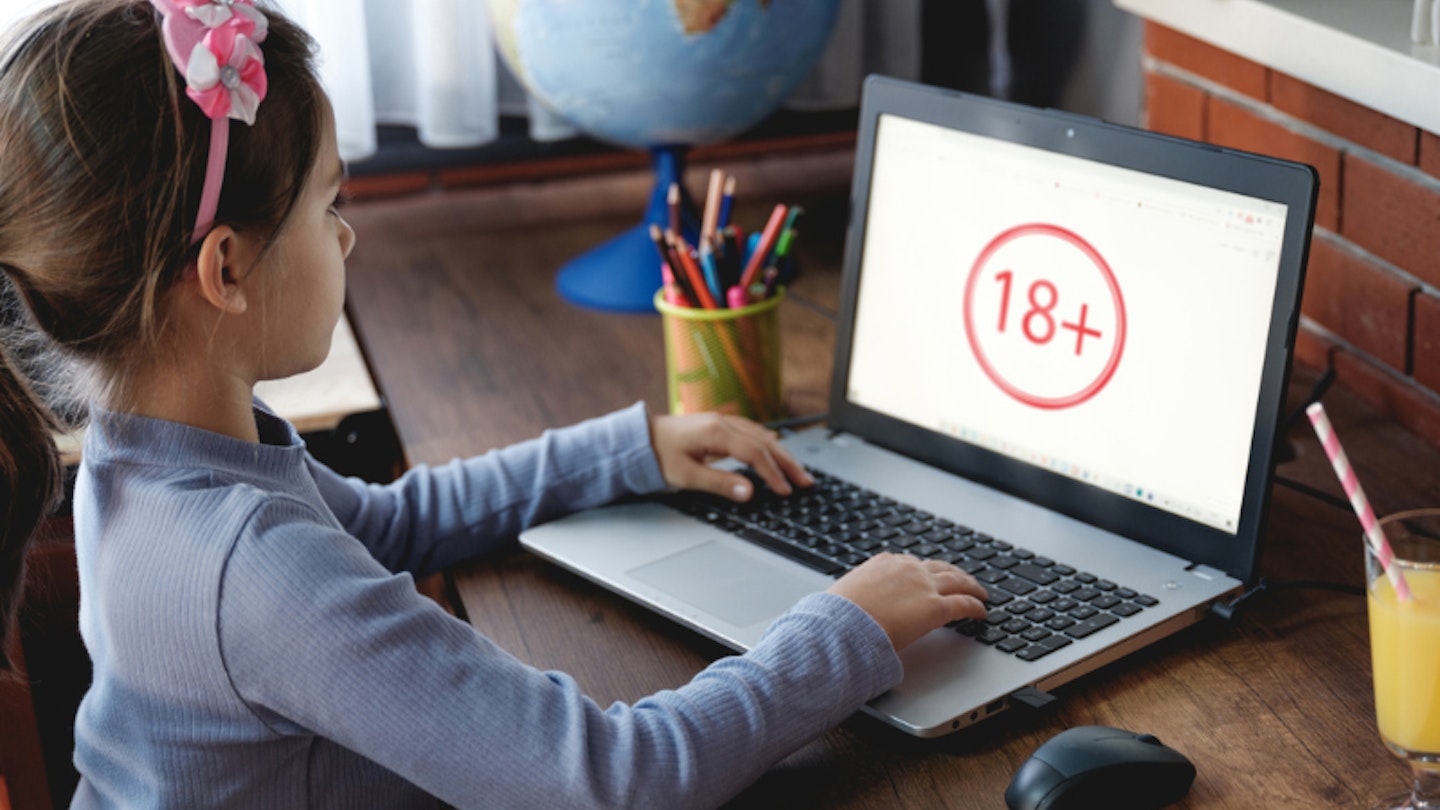Online entertainment and even education is hard to avoid these days and even the youngest members of the family want to get involved. There are so many benefits to online learning, entertainment and surveillance with the use of devices such as kids tablets, laptops, phones, smart speakers and even baby monitors, your child has a world of information at their fingertips. However, as parents we need to make sure that the information they are accessing is safe, and the content is appropriate.
With so much of today's technology targeted at kids, for example the Amazon HD Fire tablet is a tablet specifically designed with kids in mind, sooner or later your little one will take an interest and it is best to be prepared when they do and to have decided your family rules and limits when it comes to online entertainment.
What are the dangers children can encounter online?
As with most things in life, being online poses some risks and these can vary in severity and for most adults and children the Internet is useful and entertaining space. However, internet matters.org lists some of the key dangers children could face online. These are not to cause alarm, but as parents, it is best to be aware of the possible safety concerns online, and while many of these might be assumed to be more relevant to older children, again, being prepared and informed is always best.
•Impact of screen time
•Online reputation
•Information about self-harm
•Privacy and identity theft
•Sexting
•Radicalisation
•Online grooming
•Online hate
•Online pornography
•Cyberbullying
•Fake news and misinformation
•Inappropriate content
How to keep children safe online?
We spend so much of our time preoccupied by our child's wellbeing: rushing them to a doctor when they feel poorly, reminding them not to talk to strangers when out and about, even using AirTags to keep track of them on days out, or baby proofing our house, and yet, there can be dangers we haven't considered when they are curled up on the sofa, playing on their tablet, after a busy day at nursery, right in front of our eyes! So what can we do to ensure online safety for kids?
The NSPCC has lots of resources online but they suggest that first you talk to your child about online safety. In the same way we explain other household rules, or safety rules when we are out in public, like holding hands to cross the road, we need to talk to our children and help them understand how to navigate the online world just as safely as the outside world.
How to talk to your child about online safety?
Barnardo's suggest starting with the positives of the internet. Dr Elly Hanson, Clinical Psychologist and Expert on online harms, from Barnado's, says: 'If you don’t know where to start, try simply exploring what they enjoy doing online.' Always make sure your child knows they can talk to you about what they are doing, and how they are feeling.
Explain to your child that sometimes there will be things they don't understand on the internet. Dr Elly Hanson says, 'let your child know that they may come across things on the internet that leave them with a funny feeling. It might make them feel weird, confused, bad, embarrassed, or guilty.' Make sure your child knows this is normal and that they can always talk to you, and show you.
Never blame your child, or get angry, it can make them reluctant to speak to you, or show you things again. Dr Elly Hanson advises, 'ask open questions, focus on being curious about what they’ve seen but mainly how it made them feel.'
Don't just talk to your child, navigate their online world together. Let them show you what they do, how they play, and what they explore which will give you insight into how to keep them safe and anticipate any dangers they might encounter. Always keep it age appropriate though.
Don't talk about scary subjects, or tell your child horror stories, they will just shut down, instead by showing interest in their world, and understanding what they like to do, you can check they are using age appropriate apps and games and understand how to keep them safe
Is online safety really an issue for young children?
With so many devices in our homes nowadays, children will start to go online at a younger age and so it is best to be prepared. Childnet advises that there is a lot parents can do for children under 5 to ensure they are safe and have some understanding of what it means to be online:
•Go online together
•Establish clear boundaries
•Supervise your child's use
•Use parental controls
•Talk to your child early
•Choose age appropriate games
What else should you consider for online safety for kids?
The NSPCC advises thinking about the following:
Online gaming: If your child loves playing games online make sure you know the age ratings of the games they are playing, familiarise yourself with the messaging functions within the game, check for in-game purchases, and beware of how to report any problems.
Internet connected devices: These are all devices which use the internet, and they even include toys such as Hello Barbie and Furby Connect. More commonly though, it includes devices such as ring doorbells, smart TVs, smart speakers (does your little one love talking to Alexa, too?), and baby monitors. But where's the danger? Other people can sometimes access these devices without you knowing, such as a child's GPS tracker device, and they can see your content and find out information about you and your family. Ensure you have secure passwords, and do not allow your child, especially an older child who is starting to push for independence, learn the passwords of these devices.
Social Media: A terrifying one for parents, and one most commonly associated with teenagers, nevertheless, if your child is using a laptop, phone or tablet, they might be able to access social media. To keep them safe, ensure you check your privacy settings so locations are not given away, also, again, ensure you use strong passwords, and don't give them to your child.
How to prevent children from viewing inappropriate content?

Sadly, at some point while online there is a danger your child will stumble across something they shouldn't. In fact, the British Board of Film Classification states that over half of children between 11 and 13 years of age have seen pornography. However there are things you can do to prevent this. Emma James, Senior Policy Advisor at Barnardo's suggests trying 'to encourage children to use devices in communal areas such as the lounge or kitchen,' she continues, 'this will help you to be able to hear the content of the videos they are watching or the games they are playing.' Of course, this is hard if you have several devices in the house, or school age children who go to their room. So what else can you do?
The benefits of parental controls
So many devices now have parental controls and these are a great way to manage the content your little one accesses. Apple have created brilliant controls for the family to make sure children are not exposed to anything inappropriate and they recommend creating an Apple ID for your child to allow you to create individual age-appropriate controls for each family member using Family Sharing.
Parental controls Apple have developed include:
Communication limits: You can decide who they can talk to.
App limits: You can combine individual apps and websites into a single, easy-to-manage limit.
Ask to Buy: Prevent your kids from installing new apps, like social media or photo sharing, or even turn off the Safari web browser completely.
Made for Kids section on the App Store: Age appropriate content, plus Apple review every app to ensure it does what it says it does.
Block in-app purchases: A setting in Content & Privacy Restrictions lets you block all in‑app purchases automatically.
With a combination of parental controls, as well as showing an interest in your little one's online life, you can feel more reassured that the content your little one is accessing is safe.
How long should children spend online?
This is dependant on each family, but children should have a chance to play with toys, read books and spend time outside, instead of always looking at a screen, whether that is a tablet, phone or TV. There are ways to keep children safe from online dangers such as grooming, inappropriate content or bullying, but is screen time harmful too?
Of course too much of anything isn't ideal, but if your little one enjoys playing on their tablet as a way of unwinding, or they use their tablet to learn, or complete homework, then that is fine, as long as they have time for other activities too. With parental controls you can manage the amount of screen time your little one has, including setting time limits, bedtimes and tracking the amount of usage your little one (and you!) have each day. Apple have also introduced new Vision Health features for children, including Screen Distance.' They state that viewing a device (or a book!) for too long is detrimental to anyone's eye sight, especially young children, and their new feature, Screen Distance, reminds children about healthy viewing habits, plus it is automatically turned on for those younger than 13.
Are kids ever truly safe online?
With the ever increasing amount of devices in our lives, especially our homes, it is not hard to understand why parents worry about what their children might have access to. But while the number of devices is increasing, so is the amount of controls and resources to protect young people online. Technology is always improving and giving parents access to better parental controls to protect their children.
Online safety for children is widely spoken about and there are many charities and organisations like the NSPCC which runs free online safety workshops. However if you are unsure you want your child online, Childline even has a coping kit full of offline activities to prevent boredom without online content. Barnardo's is another great resource for information on how to talk to children and keep them safe. As parents, educating yourself about online safety is a great way to protect your child.
The UK Safer Internet Centrenow has a Safer Internet day each year where they cover a different online safety issue. It is great to highlight awareness and also a great resource for parents. The next Safer Internet Day will be on 6th February 2024.
Laura Healy is a Commercial Content Writer for Mother&Baby. She is a mum-of-two girls and loves writing about all things parenting, she is particularly interested in the toddler years and eco-friendly baby products, as well as children’s literature. She has a PhD in Creative Writing and has published short stories in the UK and Ireland, as well as previously writing freelance for her local paper.
